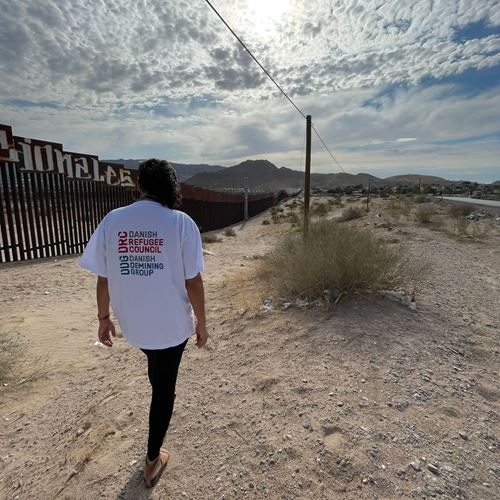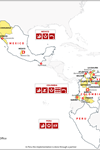
Mexico
DRC began operations in Mexico in July 2020 in response to the humanitarian crisis affecting the increasing mixed migration flows in the country.

Displacement trends
Source: | UNHCR
Displacement Trends
Definitions
EDPs: Refugees under UNHCR’s mandate
IDPs: Internally displaced persons
Asylum seekers: People whose claims for refugee status have not yet been determined
Stateless: People not considered as nationals by any State
HST: People living in Host Communities
OIP: Others in need of International Protection
OOC: Others of Concern
Forecast
DRC forecasts are based on a machine learning tool that has been developed to predict forced displacement (IDPs, refugees and asylum seekers) at the national level 1-3 years into the future.
Why we are there
DRC operates in Mexico to respond to two distinct crises: mixed migration and internally displaced persons (IDPs). Although these two situations have different causes, they both produce humanitarian needs and protection risks for persons of concern.
To date, DRC’s program in Mexico provides protection and assistance to refugees, migrants and internally displaced persons.
As of mid-2022, DRC’s program in Mexico provides protection and assistance to refugees, migrants and IDPs.
What we do
Over the last two years, DRC’s intervention in Mexico initially consisted of protection and assistance activities for recently arrived refugees and migrants in Tapachula, Chiapas - the main entry point to the country - through its local partner, the Jesuit Refugee Service Mexico (JRS).
In 2021, DRC and JRS extended their activities to Ciudad Juarez, Chihuahua at Mexico’s northern border with the United States to address the humanitarian needs of refugees and migrants unable to cross from Mexico into the United States due to policy restrictions.
In 2022, following registration as a local organization in Mexico, DRC established a field office in Tapachula from where it directly implements protection activities.
Also in 2022, DRC began to address the crisis of violence-induced internal displacement in Sinaloa and Chihuahua, both states that form part of the socalled Golden Triangle characterized by the presence and illicit activities of organized criminal groups.
DRC established a field office in Culiacan, Sinaloa from which it conducts protection and assistance activities, as well as a field presence in Los Mochis, Sinaloa and a limited field presence in Chihuahua.
Working in collaboration with


Danish Ministry of Foreign Affairs

UNHCR
Contact

Yann
Faivre
Executive Director West & North Africa and Latin America
Clémentine
Villiamier
Country Director
Yann
Cornic
Operations Director for Latin America


